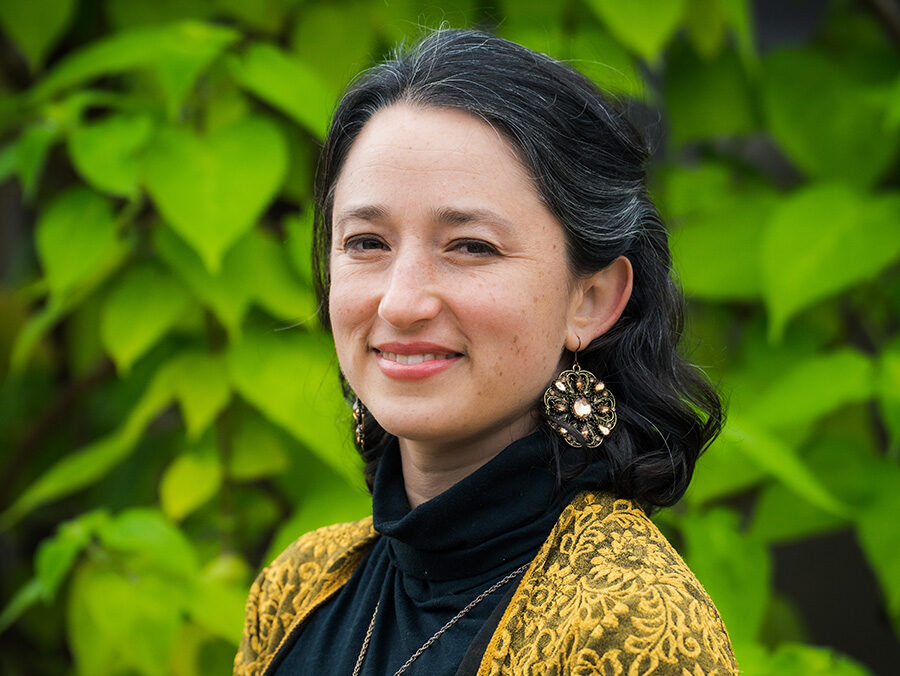By Ariela Ronay-Jinich, Founder and Executive Director or Olamim
From the Land of 100 Rabbis: Becoming an Educator in Starobin, Russia
Starobin, the name of the Belarussian town where my family emigrated to Mexico from, means “100 rabbis,” and is said to have been full of learned and learning Jews. My great-grandfather, Elias Jinich, studied in those yeshivot but abandoned religious learning in favor of a more secular interest, the teaching of modern Hebrew. In each generation, we must decide what kind of learning is most relevant and meaningful, not just to us, but to those we teach and lead. As a communal leader, I understand how reflection on practice, inquiry into communal needs, and re-skilling is critical to our capacity to deepen what we offer. I learn in order to contribute more meaningfully to this world.
To a Land 100 Years Later: Understanding My Heritage in Mexico City
Last summer, I attended a family reunion commemorating 100 years since our family migrated to Mexico City from that small Belarussian village that was later sadly wiped out by the Nazis. As the third generation born in Mexico City, and as a teenage immigrant to the United States, my visits to Mexico City mark the passing of time and the different phases of my life. This time, however, it was not only the smells and colors and ways people speak that brought me back home. This time, it was learning more deeply about the experiences and accomplishments of my first relatives to settle in Mexico that taught me the most about where I come from and who I am.
As part of the reunion, and as an exercise in putting ourselves in my relative’s 1920’s shoes, we walked through “Tacuba 15,” the first Jewish community center where newcomers spent countless hours establishing the first Jewish institutions, including the first Jewish schools and cemeteries. They were acutely aware of the need to care both for the living and the dead, the emerging and the departing. They fundraised, they donated, they planned social events, and offered interest-free loans to arriving immigrants, to whom they extended housing and employment opportunities and lent out their mailboxes for news of relatives far away. They did so much in their power to ensure the Jewish community in Mexico City would function as a full-fledged community, and thrive for generations to come.
In the Land of 100 Startups: Finding my Place in the Jewish Ecosystem
“Is this where I get it from?” I wondered. I knew that my passion for educational work was somehow related to growing up with an mother who is a teacher. But now I saw where my passion for communal work came from. This first generation saw their own continuity challenges clearly, with no delusions or hopes that some larger organization would provide funding, fellowships, or legitimacy. They had to create what they needed. This is where I get it from. This is where I get my penchant for seeing what is missing and creating it.
Having spent over fifteen years launching innovative, Jewish educational projects in the Bay Area, I am so grateful for the many professional opportunities that have enabled me to lead projects where my passion, creativity, and love for Jewish learning and communal innovation have resulted in lasting contributions to a wide variety of organizations (Urban Adamah, Wilderness Torah, Edah, Olamim.) I’ve helped build many of these programs from the ground up. Why start so many new things? Because those opportunities didn’t already exist, and I saw not only how attractive they would be to participants, but how necessary they were to our continuity as Jews.
The core concept behind all these programs has been that Jewish learning has to be joyful, meaningful, and compelling, and that there is no continuity of Jewish life without these opportunities and experiences. Olamim, my most recent and personal project, presents an innovative approach to family engagement for multi-ethnic families, and suggests that programmatic work needs to be embedded within a culturally-relevant theory of change that addresses our contemporary challenges to Jewish continuity.
A Long Line of Change-Makers: Joining a Legacy
My relatives 3 generations ago had to think big and deep – how to integrate into Mexican society while retaining their religious and cultural identities; how to manage rifts in the community stemming from the diversity of political viewpoints and ethnic affiliations; how to meet the needs of an immigrant populace who might manage to get by as peddlers, but who could be supported to become teachers, doctors, and other professionals who could serve the community. They were ambitious in their goals, generous with their own resources, and unrelenting with their belief that their success would carry generations to come. Now I see, this is where I get it from, and this is what must continue to inspire me as an innovator in my own generation.



